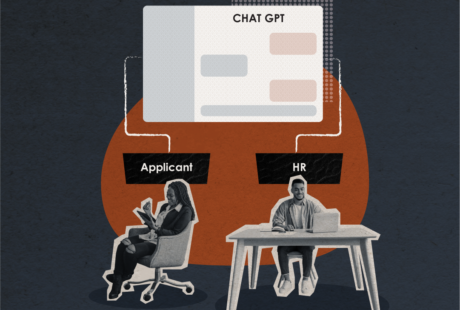Related:
Canadian Employment and Immigration Law Quarterly Update
Updating business managers with what you need to know right now:
This legal update looks at a number of recent developments and potential pending developments in Canadian immigration law.
Immigration lawyer Stanley Leo discusses processing backlogs, confusion surrounding student work policies, the use of artificial intelligence in application processing, occupation-specific immigration policies and more.
S1: More Foreign Nationals Looking for Work
S2: Processing Backlogs Persist
S3: Confusion Surrounding Student Work Policies
S4: Artificial Intelligence in Processing
S5: Waiving the Requirement for Temporary Residents to Return to Their Home Country at the End of Their Stay?
S6: Occupation-Specific Immigration System Imminent?
S1: More Foreign Nationals Looking for Work
GB: What should Canadian employers be looking for right now, with regards to immigration law?
They should expect to see a lot more foreign nationals in Canada looking for work. There has been a significant move towards increasing immigration targets and also facilitating more work authorizations for certain people in Canada. This includes accompanying dependents of foreign workers and students such as spouses and children, as well as the possibility of work exceeding 20-hours a week for some international students.
GB: What impact is this having on the economy?
I haven’t dug deeply into national job growth data that’s been released over the last few months, but basically every target has been blown out of the water in terms of job growth. There’s some indication that this has at least partly been driven by immigration. My expectation is that a lot of employers that are looking at hiring are going to be encountering more foreign nationals looking for work, whether they’re authorized to do so or not. The pool of potential authorized workers is likely larger however, if only because of rule changes.
S2: Processing Backlogs Persist
GB: A theme from the last several times we spoke has been backlogs in terms of government processing of immigration and other applications. Does this situation persist?
That really hasn’t changed. To give them some credit, I think they’ve been able to make some gains in getting more applications processed as processing times are starting to come down in at least some of the programs. Overall, though, it’s no secret that there’s still a significant backlog.
Some months ago, the government announced plans to bring in upwards of 550,000 people per year by 2025. The immigration targets are rolling every time they make an announcement. It’s creating an environment that, to be frank, is quite hectic.
I think the Immigration Department is trying to serve too many goals at the same time. In some ways they almost have to.
GB: If they can’t handle the current volume of applications, it’s difficult to understand how they intend to meet increasing targets.
S3: Confusion Surrounding Student Work Policies
GB: Can you give me an example of this chaos playing out to the detriment of applicants or businesses?

There were headlines in October when a temporary policy was announced regarding international students who are otherwise already allowed to work off campus while studying full time. The takeaway was that for one year they would be authorized to exceed the longstanding 20-hour per week cap. This announcement was met with much fanfare, but when the details were released later it became clear that the scope of the policy was actually a lot smaller than the initial headlines would have indicated. The policy only applied to study permits that were applied for before October 7, when the announcement was made.
As you know, in this environment that we’re in, with so much news, it’s hard to get the details. Lots of students have been coming to me and asking if they can work more than 20 hours per week. Many of them have study permits applied for after October 7 and don’t qualify for the policy, but still face pressure to work more than 20-hours a week. That kind of nuance is often lost in all of the noise that people have to navigate.
GB: This murky information would seem to present a challenge to both international students and those who may wish to employ them.
My message to employers is this: be very careful about giving more hours to international students. Employers should ensure that government policies are properly understood. There are frequent rule changes and efforts to address problems in a bit of a haphazard way. It’s hard to know what the rules are at any given time.
Technically speaking, employers that have breached the Immigration Act may be subject to criminal penalty by employing someone in a situation of unauthorized work. Most cases where this has been enforced have involved very egregious situations of exploitation or just a clear disregard for any of the laws that are relevant to this situation, but the law could still be a liability to an employer.
GB: What impact does the confusion have on students?
From a human perspective, employers should be careful with this. If they place pressure on students, it can have a profound impact on them. The unauthorized work could potentially completely derail someone’s plan for immigration. It affects other things like potentially applying for a post-graduation work permit, which is a step that many international students have baked into their strategy for eventually immigrating to Canada.
S4: Artificial Intelligence In Processing
GB: What can you tell us about plans to use artificial intelligence to expedite the review process?
We’ve talked about this before, but the use of artificial intelligence is something that is still little understood as far as how the government will implement it. It’s certainly becoming clear that it’s going to be an integral part of how applications are going to be processed moving forward.
GB: How could this technology be put to use in this context?
It could allow them to deal with a fairly large percentage of applications on an expedited basis, simply because AI is screening them and indicating that they are very low risk applicants.
As far as information about the systems and how they actually work, it’s still very hush, hush although there has been more high level information shared by the government. There’s a lot of speculation on the part of the immigration professionals community about what it’s going to look like in terms of actual impact in processing of applications.
S5: Waiving the Requirement for Temporary Residents to Return to Their Home Country at the End of Their Stay?
GB: Are there any other policy shifts being discussed that might be of interest?
There was a news story earlier this year about a potential shift in policy relating to temporary resident applications, or people asking for visas, or wanting to come to Canada with work or study permits. Currently all those intending to temporarily reside in Canada have to prove that they are going to return to their home country at the end of their stay. There are reportedly talks taking place within the Immigration Department about temporarily waving this requirement, as a means of dealing with the backlog. This speaks, again, to the chaotic environment.
GB: What is the status of this potential policy change?
As far as I know this is still being debated, but it’s quite a surprise to see that it’s even in discussion as it’s been a fundamental part of the system for such a long time. I can tell you that a great number of people over the years have been refused because they’ve failed to satisfy an officer that they’ve met that specific requirement.
GB: How do immigration professionals feel about this idea?

It’s being met with concern. I guess it’s ironic that immigration professionals are raising the alarm. There is an expectation that we would welcome a change like that, which reduces barriers for people to come to Canada.
Unfortunately, the system is already so overloaded that making such a change would probably further increase the volume of applications.
There’s also the question of goodwill and people’s perceptions of Canada. If such a rule were changed on a temporary basis, and then was changed back, people would start getting refused on that basis again. People would question why the Canadian government suddenly became concerned about it again. I could see the department itself having a lot of pushback about having something like that, because it would just really be a huge, huge change. It’s kind of like Pandora’s Box, once you open it, you’re not going to be able to close it again.
S6: Occupation-Specific Immigration System Imminent?
GB: What can you tell us about occupations that will be favoured by the Immigration Department?
There is a specific change that has been speculated about for a while that I’m expecting to see acted upon. The immigration system currently moves through an invitation only system for people who are applying as skilled workers. It’s a point based system that’s supposed to bring in the most highly educated people with the best language skills and work experience. The only real distinction the system has made in terms of a person’s background beyond those things is whether the person has what’s considered high skilled work experience. This refers to a particular segment of occupational codes that the government uses to describe the entire Canadian workforce. If a person doesn’t have experience in one of those occupational codes, they can’t qualify to immigrate.
After the experience of the pandemic, it sounds like there’s more appetite to acknowledge the importance of certain occupations that the immigration has not been designed to recognize.
What we’re expecting in the next few months is for the system to move to a more occupation specific system, where people with experience in certain occupations may be prioritized as far as getting an invitation to apply for permanent residence.
GB: How is your profession responding to this potential change?
I think there is concern about how responsive it will be to labour force needs. For people like myself who are counselling intended immigrants, how is that navigated, especially if it could change with some frequency? Would there be warnings as to when certain occupations may fall out of favour? Immigration pathways require consideration of past and future factors, often as measured in years. If a person doesn’t meet a priority occupation today, it may take years for them to gain experience in that occupation, but that occupation may no longer be a priority once they have that experience. My best guess is that there will be a hybrid system prioritising certain occupations but also maintaining more limited space for candidates with experience in non-prioritised occupations.
It’s a system that makes it more difficult for people to compete on a more general basis. Are we going to end up seeing people with experience as managers in certain industries that are not deemed as critical found as non-competitive, even if they possess important, helpful skill sets? We’re waiting with bated breath to find out.




